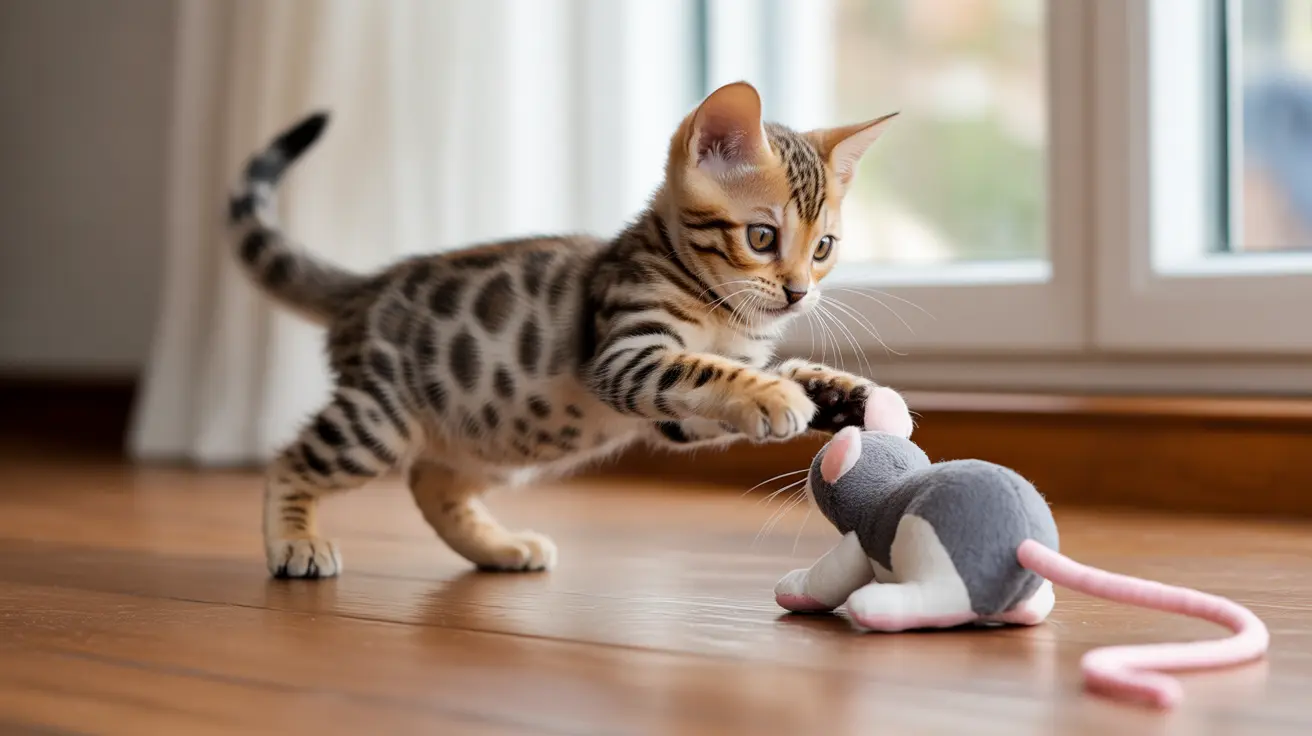If you're wondering "why is my kitten so aggressive," you're not alone. Kitten aggression is a common concern among pet parents, but understanding its root causes can help you address this behavior effectively. While aggressive behavior in kittens might seem alarming, it's often a normal part of their development and can be managed with proper guidance and patience.
Understanding Normal Kitten Behavior vs. Aggression
Kittens naturally display what might appear as aggressive behaviors during play and development. These actions are typically their way of practicing hunting skills, establishing boundaries, and learning social interactions. However, it's essential to distinguish between normal playful behavior and concerning aggression.
Common Causes of Kitten Aggression
Play Aggression
The most frequent type of kitten aggression stems from their natural hunting instincts. Kittens use play to develop crucial life skills, which can include pouncing, batting, and mock fighting. Without proper outlets or training, these behaviors may be directed inappropriately toward humans or other pets.
Fear and Anxiety-Based Aggression
Young kittens may exhibit aggressive behavior when they feel threatened or unsure. This can manifest through hissing, swatting, or defensive postures. Common triggers include unfamiliar people, loud noises, or sudden environmental changes.
Overstimulation Aggression
Kittens can become overwhelmed during petting or play, leading to sudden aggressive responses. Watch for warning signs like tail twitching, skin rippling, or dilated pupils, which often precede an aggressive episode.
Managing Kitten Aggression
Appropriate Play Techniques
Redirect your kitten's energy toward appropriate toys and play sessions. Use wand toys, balls, and other interactive items that keep your hands at a safe distance. Never encourage play with hands or feet, as this can lead to problematic behaviors later.
Environmental Enrichment
Provide plenty of environmental stimulation:
- Multiple scratching posts
- Climbing trees and perches
- Interactive toys and puzzle feeders
- Safe hiding spots and quiet areas
- Regular play sessions throughout the day
Socialization and Training
Early socialization is crucial for developing well-adjusted cats. Expose your kitten to various people, sounds, and experiences during their critical development period (3-9 weeks). Use positive reinforcement to reward calm behavior and appropriate play.
When to Seek Professional Help
While most kitten aggression is normal and manageable, certain situations warrant professional intervention:
- Aggression that causes injury
- Sudden behavioral changes
- Persistent aggressive episodes despite intervention
- Signs of fear or anxiety that don't improve with time
Prevention Strategies
Prevent aggressive behaviors by:
- Establishing consistent daily routines
- Providing adequate exercise and mental stimulation
- Creating a stress-free environment
- Using pheromone diffusers to promote relaxation
- Maintaining regular veterinary check-ups
Frequently Asked Questions
Why is my kitten so aggressive when playing and how can I manage play aggression?
Play aggression is normal kitten behavior that stems from developing hunting instincts. Manage it by providing appropriate toys, scheduled play sessions, and never using hands as play objects. Redirect aggressive play to appropriate toys and end sessions if your kitten becomes too rough.
What are the signs of overstimulation in kittens and how can I prevent it from causing aggression?
Signs include tail twitching, dilated pupils, skin rippling, and sudden mood changes. Prevent overstimulation by keeping handling sessions short, watching for warning signs, and providing escape routes for your kitten when they need space.
How does fear or anxiety contribute to kitten aggression and what can I do to help my scared kitten?
Fear-based aggression occurs when kittens feel threatened. Help by providing safe spaces, using gentle approaches, and allowing the kitten to initiate interaction. Create positive associations with new experiences through treats and praise.
Could my kitten's aggression be caused by medical issues and when should I see a vet?
Medical issues can cause or exacerbate aggression. Consult a vet if you notice sudden behavioral changes, if aggression is accompanied by physical symptoms, or if the behavior seems unusually intense or persistent.
How can early socialization affect my kitten's aggressive behavior and what steps can I take to improve it?
Early socialization significantly impacts future behavior. Expose kittens to various people, environments, and experiences during their critical socialization period. For older kittens, gradual exposure to new experiences with positive reinforcement can help improve social skills.






